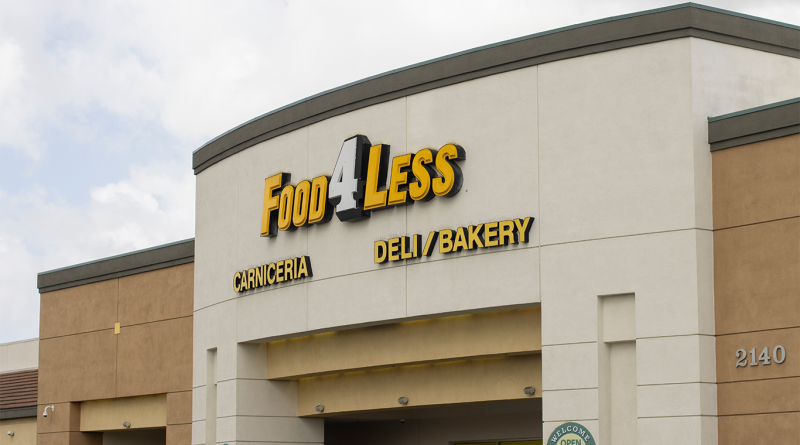Kroger’s Food 4 Less Workers Authorize Strike
Unionized employees at Kroger’s Food 4 Less stores in Southern California have voted overwhelmingly to authorize a strike if contract negotiations fail to produce an acceptable agreement. The vote by the United Food and Commercial Workers (UFCW) union is the latest in a series of labor actions by workers across various industries seeking better pay and working conditions. This move reflects a broader trend where frontline workers, who have been critical during the pandemic, are demanding their fair share of the economic gains realized by their employers.
The vote, which saw 97% of participating members in favor of the strike authorization, underscores the deepening discontent among grocery workers. These workers, who have been on the frontlines during the pandemic, are calling for higher wages, better benefits, and improved safety measures. The UFCW union represents approximately 7,000 workers at 86 Food 4 Less stores in Southern California.
The Crux of the Conflict
The labor dispute at Food 4 Less highlights the ongoing struggle between the UFCW union and Kroger, the parent company. Historically, negotiations between the two have been fraught with challenges, reflecting broader tensions in the retail industry. The current demands from the workers include substantial wage increases, enhanced health benefits, and stricter safety protocols to protect them from ongoing health risks.
Kroger, on the other hand, has faced increasing pressure from labor groups and activists who argue that the company’s profits have soared during the pandemic while workers’ conditions have remained stagnant. Financial reports indicate that Kroger’s revenue and profits have significantly increased during the pandemic, a period when grocery workers have been deemed essential. Despite this, the company has maintained a stance that it seeks a fair agreement that balances the needs of both the business and its employees.
Voices from the Frontline: Worker Experiences
The stories from the workers at Food 4 Less paint a vivid picture of the sacrifices and challenges they have faced over the past few years. Maria Gonzales, a cashier at a Food 4 Less in Los Angeles, shares her experience: “We worked through the worst of the pandemic, risking our health and the health of our families. We were called heroes, but our paychecks and benefits don’t reflect that.”
Similarly, John Martinez, a stock clerk, emphasized the disparity between the company’s profits and the workers’ compensation. “Kroger has made record profits, but we’re still struggling to make ends meet. We’re not asking for luxury, just fair compensation for our hard work.”
Andrea Zinder, a spokesperson for the UFCW, articulated the union’s stance clearly: “These workers have risked their lives to keep stores open and shelves stocked. It’s time for Kroger to step up and provide the compensation and respect these essential workers deserve.”
Economic and Community Impact
The potential strike by Food 4 Less workers comes at a critical time when many industries are grappling with labor shortages and rising inflation. The grocery industry, in particular, has seen significant disruptions in the supply chain, and a strike could exacerbate these issues in Southern California.
Local businesses and customers are already expressing concerns about the impact of a possible strike. “If the strike goes ahead, it will affect our daily operations significantly. We rely on Food 4 Less for our supplies,” says Linda Carter, owner of a small restaurant in Los Angeles. Similarly, regular customers fear that a strike could lead to shortages and increased prices, affecting their grocery shopping routines.
The broader economic implications are also significant. With inflation on the rise, workers are finding it increasingly difficult to make ends meet, adding urgency to their demands. This situation highlights a growing trend where workers across various sectors are pushing back against employers to secure better wages and working conditions.
Negotiation Dynamics and Future Implications
Negotiations between UFCW and Kroger are set to continue, with both sides expressing a willingness to engage in dialogue. However, the union has made it clear that if an agreement is not reached, workers are prepared to walk out. This potential strike could set a precedent for other labor movements across the country, reflecting a shift in the balance of power between employers and employees.
If the strike proceeds, it could lead to significant disruptions in the grocery supply chain, affecting not just Food 4 Less stores but also the broader community. The outcome of these negotiations will be closely watched by other unions and labor groups, as it could influence future labor actions in the retail sector and beyond.
The situation at Food 4 Less is a microcosm of the broader labor movement in the United States, where workers are increasingly vocal about their rights and demands. As the negotiations unfold, it remains to be seen whether Kroger will recognize the contributions of its frontline workers and meet their demands for fair compensation and improved working conditions.
Sources:
- The Guardian: Kroger Food 4 Less Strike Vote
- CNBC: Kroger Posts Record Profits Amid Pandemic
- The New York Times: History of UFCW Strikes
- Bloomberg: Labor Shortages and Inflation in Labor Negotiations
- The Guardian: Frontline Worker Stories
- Los Angeles Times: Community Impact of Grocery Strikes
- Kroger Q4 2023 Results
- Kroger Q4 2021 Results
- Kroger Wikipedia
